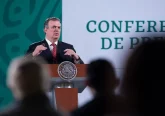I recently sat down with Dr Iain McLean and Dr Scot Peterson to discuss their new book, Legally Married: Love and Law in the UK and the US, which discusses the issues of same-sex marriage in both countries.
I found your book very interesting and though it addressed a very topical issue whilst providing a wealth of historical information and context. Could I start by asking what you think is driving the apparently accelerating legalisation of same-sex marriage worldwide?
Iain McLean: Which is the chicken and which is the egg? In North America, Latin America, and west/central Europe, social attitudes are changing further and faster than on any other moral issue that surveys have ever tracked. And politicians are responding. So are courts. Although judges like to believe that they are above politics, they would think hard about handing down constitutional interpretations that put them wildly at variance with public opinion.
There is a possible ratchet effect too. The US Supreme Court’s decision in Windsor v. US, in June 2013, holding that denial of federal tax benefits to same-sex widow Edith Windsor, which she would have received if her spouse had been male, was unconstitutional, has speeded up the process of legalising same-sex marriage in New Jersey, and may do so in other US states as well.
The book shows how there have been interesting differences between Scottish and English marriage law for a very long time. You note there is now relative harmonisation, but how do you think the (probable) new regional differences introduced by same-sex marriage law, e.g. with respect to the spousal veto for transgender individuals or the inability of same-sex couples to be married in Northern Ireland, will affect the UK overall?
Iain McLean: It will directly affect very few people, but of course it will be important for them. For the rest of us, it is a reminder that we live in a federal system, even though most of us don’t realise that we do.
As a more light-hearted question, in the book you outline a number of cases of marriages of a subversive or unusual nature. Is there any one in particular that stays with you as being the most memorable?
Scot Peterson: My personal favourites are the bigamy cases. They’re a problem whenever different jurisdictions have different rules about marriage and divorce, as Scotland and England and the United States have both done. Lord Brougham, an interesting character, represented a man who was accused of bigamy when he married a second time after obtaining a divorce in Scotland. Brougham and his client lost that case in 1812, but by 1835 Brougham had become Lord Chancellor and could narrow the result, so that Scottish divorces were generally recognised in England (and he could criticize the earlier case in the process). Similarly, in the United States two cases from North Carolina were decided by the Supreme Court in 1942 and 1945 in different ways. The couple, who were from the same small town, went to Las Vegas, Nevada and got a divorce. In the first bigamy prosecution, the Supreme Court held that North Carolina had to recognize the divorce; in the second, it held that in the circumstances the couple’s spouses, who had remained in North Caroline, had not been given adequate notice, and the couple could be tried for bigamy. The couple could have moved permanently to Nevada, but once they returned to North Carolina, they had to comply with that state’s rules. The point here is that federal systems can, but need not, undermine predictability in important aspects of people’s lives. Sudden change can do the same thing. In England after the civil war Charles II had to confirm that non-religious marriages performed during the Commonwealth remained valid. So too in California, after same-sex marriage was outlawed by Proposition 8 the Supreme Court had to decide whether existing same-sex marriages were valid (they were).
In the book, you are careful about not making predictions of the future, but I wondered if you would be willing to make a few here. Since your book discusses how the nature of marriage has changed over time, e.g. to allow things like civil and inter-racial marriages, and you dismiss polygamy as a practical policy idea, what do you think the next major push to change the law will be?
Iain McLean: We are careful to distinguish polygamy (one spouse, multiple spouses) from polygyny (one man, multiple wives, but not vice versa). Mormons in the 19th century and some Muslim communities now practise polygyny, but we don’t know anywhere that symmetrical polygamy is practised. Because of the gender discrimination inv9olved in polygyny, we can’t see any democracy approving it in our lifetimes. True polygamy is another matter – but we have not seen any proposal for non-discriminatory polygamy.
Elsewhere, you quote Nate Silver as saying that in twenty years, the vast majority of American states will have a majority of residents in favour of same-sex marriage. Yet, when do you think same-sex marriage will be legal in all American states? And will it come through piecemeal legislative decisions or will the Supreme Court step in at some point?
Scot Peterson: Political scientists probably shouldn’t predict. But there is an amazing consistency between the states that prohibited interracial marriage in 1967, the states that prohibited abortion in 1973 and the states that have constitutional amendments prohibiting same-sex marriage. In those states the US Supreme Court will have to step in. At some point, same-sex marriage will become sufficiently prevalent that it will be too difficult for the Supreme Court to dodge the issue. In addition, it seems highly likely that a sympathetic case will arise in which a same-sex couple is legally married but the laws of a state that cannot recognise same-sex marriage disadvantage them substantially, say, with respect to their rights vis-à-vis their children or property. (The latter was the case in Windsor v. US, where the federal Defense of Marriage Act was declared unconstitutional.) Lawyers will exploit the case to get an advantage in the Supreme Court. The future makeup of the court depends upon imponderables like the outcome of presidential elections and the makeup of the Senate (and its filibuster rules, as we saw last week). But eventually the changing attitudes Iain mentioned in his response to Question 1 will make it impossible not to have uniform recognition of same-sex marriage.
In the British context, do you think the Church of England will change its stance on not permitting same-sex marriages in the near future?
Iain McLean: The poor Church of England is in a very difficult place. Surveys show that Anglicans do not differ much from the general public in their attitudes to same-sex marriage. About half of them approve of it, and the percentage is growing. But there is a group known as “conservative evangelicals” who are extremely good at getting on to C of E committees – because they are passionately opposed to same-sex marriage (and, some of them, to women bishops). Therefore they are willing to serve on committees when nobody else is.
Archbishop Justin Welby, like Pope Francis, knows that opposition to both of those changes makes the church look at best weird and at worst immoral to the younger generation. Pope Francis has started to address the problem by appealing to ordinary Catholics over the heads of their bishops and the Vatican bureaucracy. It may be harder for Archbishop Justin.
To be clear, neither the archbishop nor the Pope is proposing to change his church’s teaching (the Pope can, the archbishop cannot); but both realise that constant church harping on about what are (except for those directly affected) relatively minor moral matters is disastrous for mission.
Thank you very much for your answers. What are you both planning on writing next, either separately or together?
Iain McLean: Well, I need a rest after two policy books in quick succession. Currently my focus is on being the voice of God in an upcoming performance of Handel’s Messiah (‘Thus saith the Lord, the Lord of hosts…’) Then I have a year’s tedium of serving on the national REF (Research Excellence Framework) committee, on which I will not be the voice of God.
However, I would like to return to work on the Scottish and American Enlightenments of the late 18th century, on which Scot and I have already published several papers.
Scot Peterson: In addition to working on the Scottish and American Enlightenments, I hope to (finally) publish my D.Phil. research on national churches in the twentieth century United Kingdom. In addition, I have a few smaller projects on voting in the House of Commons and on the abdication of Edward VIII (which are not entirely unrelated!). The abdication is about another complicated marriage, but it was a real constitutional moment in the UK with implications for both the monarchy and the established church.








No Comment